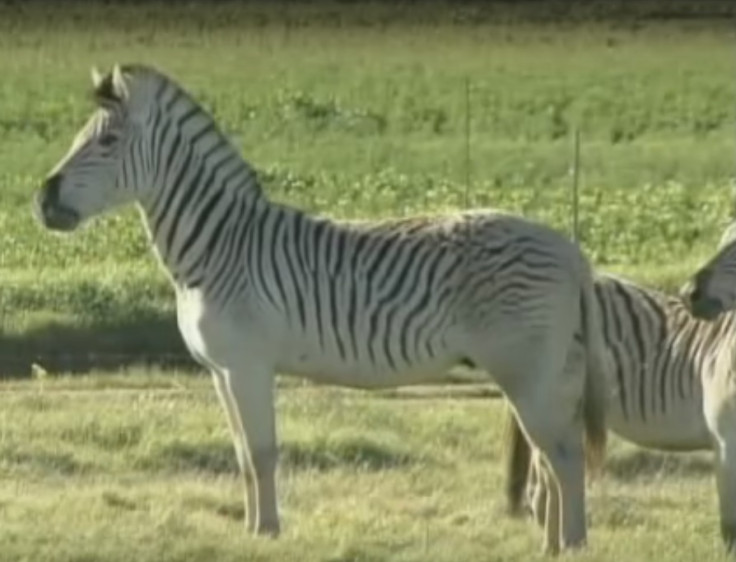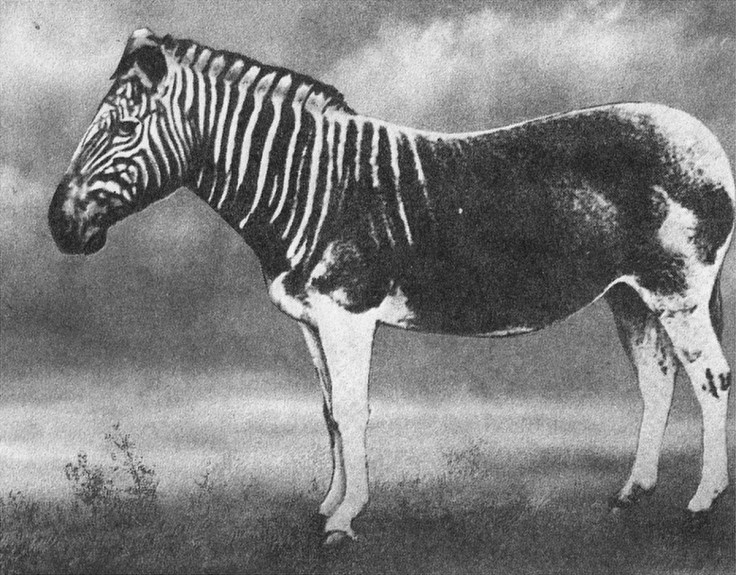Once-extinct zebra-like 'quagga' brought back to life in South Africa using DNA engineering

A zebra-like horse known as a 'quagga', that disappeared off the face of the earth in the 1880's, could once-again roam the plains of Africa after a 30-year project by South African scientists. A cousin of the zebra, the quagga was labelled extinct after over-hunting by European settlers over 100 years ago.
Quaggas look very similar to the modern day zebra, although the famous stripes only appear on the front half of their bodies. And unlike the zebra, they are brown along the rear half of their body.
Now, a group of scientists - with the help of DNA and specific cross-breeding - have bred an animal that looks strikingly similar to the quagga. The team based at the University of Cape Town and led by Professor Eric Harley started off by analysing the final remaining quagga skins – which initially revealed the animal was a sub-species of the plains zebra.
At the beginning of the 30-year-project, 19 animals were selected with the most quagga like characteristics. They then reproduced, with scientists only allowing the most quagga like offspring to reproduce.

With each new group of foals, now between four or five generations, the distinct colourings have become stronger and more defined. The new creatures, which were dubbed "Rau quaggas" after Reinhold Rau, one of the project's originators, only number 6 on a reserve currently, but when the group reaches 50, they plan on the herd living together.
Harley concedes that they are not "genetically" exactly the same as the original quagga, but he believes that it is still a worthwhile project to write the wrongs of history. He said to CNN: "In fact we have over the course of 4, 5 generations seen a progressive reduction in striping, and lately an increase in the brown background colour showing that our original idea was in fact correct."
But some critics have slammed the project saying that all they have done is create a different looking zebra, without taking into account the ecological adaptations or behaviour differences of the original quagga. Fellow project leader Mike Gregor said: "There are a lot of detractors who are saying you can't possibly put back the same as what was here.
"What we're saying is you can try and do something or you could just not. And I think us trying to do, trying to remedy something, is better than doing nothing at all."
© Copyright IBTimes 2025. All rights reserved.





















